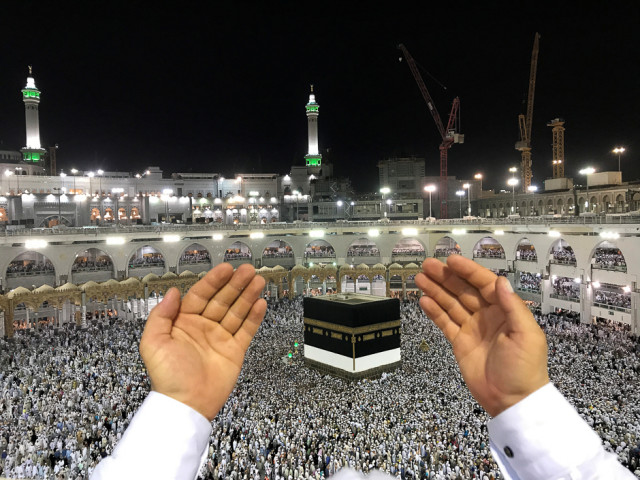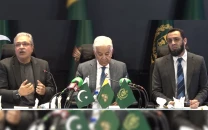Pakistani pilgrims to receive 'historic' Hajj facilities
Pilgrims will stay in upgraded camps in Mina and top-tier hotels in Makkah, says Hajj Director Azizullah Khan.

Pakistani pilgrims performing Hajj this year will benefit from unprecedented and historic facilities, including fully air-conditioned camps and enhanced accommodation, according to Director Hajj in Makkah, Azizullah Khan.
Speaking to Radio Pakistan on Tuesday, Khan said that for the first time, pilgrims from Pakistan will stay in upgraded camps in Mina equipped with sofa-cum-beds, gypsum board walls, and air conditioning, a major upgrade from previous arrangements with floor mattresses and air coolers. Elevated luggage storage racks have also been added to improve comfort.
"Dedicated teams are working round the clock to oversee food, health, and transport arrangements for maximum facilitation of pilgrims," Khan said, adding that 99 per cent of Pakistani pilgrims have received their Nusuk cards, the official Hajj permit and identification tool introduced by Saudi authorities.
Pilgrims will be accommodated in top-tier hotels and residential buildings in the Azizia and Batha Quraish neighbourhoods of Makkah. They will also receive specially designed Hajj kits, including a bag bearing the Pakistani flag, a QR code for identification, and essential information.
Additionally, a mobile application will provide access to Hajj group data, training schedules, flight and accommodation details, and live location maps throughout the pilgrimage.
Saudi Arabia has also expanded its use of digital tools such as the Nusuk, Hajj Navigator, Tawakkalna, and Asefny apps to streamline the pilgrim experience, ensure safety, and offer real-time guidance.
In Pakistan, compulsory Hajj training began on January 18 with all relevant details available via the Pak Hajj 2025 Mobile App.
For the first time under the government Hajj scheme, pilgrims have been offered the option to pay in three easy installments, and all financial transactions related to the pilgrimage have been fully digitised for greater transparency and accountability.
To support pilgrims' health needs, Pakistan’s Hajj Medical Mission has established hospitals in both Makkah and Madinah, in addition to two dispensaries in Madinah and nine in Makkah, all of which are fully operational.
A Monitoring Cell has also been set up to assist private pilgrims and address any issues they may encounter. Specialised units, including a Wheelchair Desk, are available to cater to the needs of elderly or physically challenged pilgrims.




















COMMENTS (5)
Comments are moderated and generally will be posted if they are on-topic and not abusive.
For more information, please see our Comments FAQ